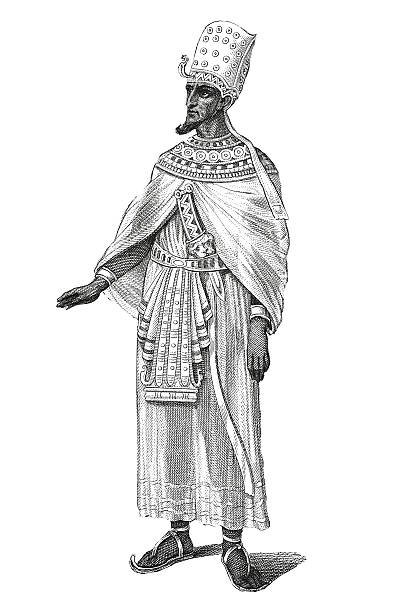Exploring Human Geography Hypotheses: Notable Examples and Their Implications:
Human geography is the study of human populations, their interactions, and their relationship with the physical environment. It investigates diverse topics such as urbanization, migration, economic development, and cultural diversity. Hypothesis formulation is an essential aspect of human geography research, as it helps scholars develop theories to explain and predict various phenomena. This article will explore some notable hypotheses in human geography, their implications, and their relevance to contemporary issues.
Hypothesis development in human geography
Hypotheses serve as the foundation for geographical research, guiding the direction of inquiry and providing a basis for empirical testing. They are formulated through a systematic process that begins with the identification of a research question, followed by a thorough review of the existing literature, and the development of a testable statement. Hypotheses in human geography can be descriptive, explanatory, or predictive, depending on the research objectives.
Notable human geography hypotheses examples
A. Environmental determinism
Environmental determinism posits that the physical environment has a strong influence on human culture and behavior. Key proponents include Friedrich Ratzel, Ellen Churchill Semple, and Ellsworth Huntington.
The hypothesis asserts that climate, topography, and other environmental factors shape societal development and cultural characteristics.
Critics argue that environmental determinism oversimplifies the complex relationship between humans and their environment and ignores human agency.
B. Possibilism
Possibilism, a response to environmental determinism, emphasizes human agency in shaping cultural and societal outcomes. Major proponents include Paul Vidal de la Blache and Carl Sauer.
The hypothesis suggests that while the environment may impose constraints, human beings have the ability to adapt, innovate, and create a variety of cultural landscapes.
Critics argue that possibilism can underestimate the impact of environmental factors on human behavior.
C. Cultural diffusion
Cultural diffusion explores the process by which cultural traits spread from one society to another. Key proponents include Alfred L. Kroeber and Julian Steward.
The hypothesis states that cultural traits, such as language, religion, and technology, spread through mechanisms such as migration, trade, and communication.
Factors influencing diffusion include barriers to interaction, cultural resistance, and the attractiveness of the traits being diffused.
D. Central place theory
Central place theory, proposed by Walter Christaller, is a spatial model that explains the distribution and organization of settlements and services.
The hypothesis posits that settlements and services are organized hierarchically based on economic principles, with larger centers providing more specialized services and surrounded by smaller centers with fewer services.
The theory has been widely applied in urban planning and regional development, but it has limitations in accounting for historical, political, and cultural factors influencing settlement patterns.
E. Distance decay
Distance decay, proposed by Edward Ullman and others, examines the effect of distance on interactions between places.
The hypothesis suggests that the interaction between two places decreases as the distance between them increases, due to factors such as transportation costs and time constraints.
Distance decay has been applied in studies of migration, trade, and communication, and it continues to be relevant in the age of globalization and digital technology.
The role of technology in testing human geography hypotheses
Technological advances have revolutionized the testing and validation of human geography hypotheses. Geographic Information Systems (GIS) enable the spatial analysis and visualization of complex data, while remote sensing provides valuable information about land use, population density, and environmental change. Big data and computational social science have also expanded the scope and scale of human geography research, allowing for more sophisticated analyses and predictions.
Implications and future direction
A. The influence of human geography hypotheses on policy-making
Human geography hypotheses have significant implications for policy-making, as they provide insights into the underlying mechanisms driving societal development, resource allocation, and urban planning. Policymakers can use these hypotheses to inform decisions on infrastructure, environmental management, and social policies, ultimately shaping more sustainable and equitable societies.
B. Contributions to the understanding of complex human-environment interactions
The hypotheses discussed in this article highlight the complex interplay between human populations and their environments. They emphasize the importance of considering both environmental constraints and human agency in understanding and addressing contemporary challenges such as climate change, urbanization, and migration.
C. Emerging trends and challenges in human geography research
As human geography continues to evolve, new research trends and challenges are emerging. For instance, researchers are increasingly exploring the role of technology, social networks, and global governance in shaping human-environment interactions. Additionally, interdisciplinary approaches combining insights from geography, sociology, economics, and environmental science are becoming more prevalent, offering novel perspectives on pressing global issues.
Conclusion
This article has provided an overview of some key hypotheses in human geography, including environmental determinism, possibilism, cultural diffusion, central place theory, and distance decay. These hypotheses have not only shaped the evolution of human geography as a discipline but also contributed to our understanding of the complex relationships between human populations and their environments. As human geography continues to advance, it is crucial for researchers, policymakers, and the public to engage with these hypotheses critically, fostering curiosity and critical thinking in the pursuit of a more just and sustainable world.






